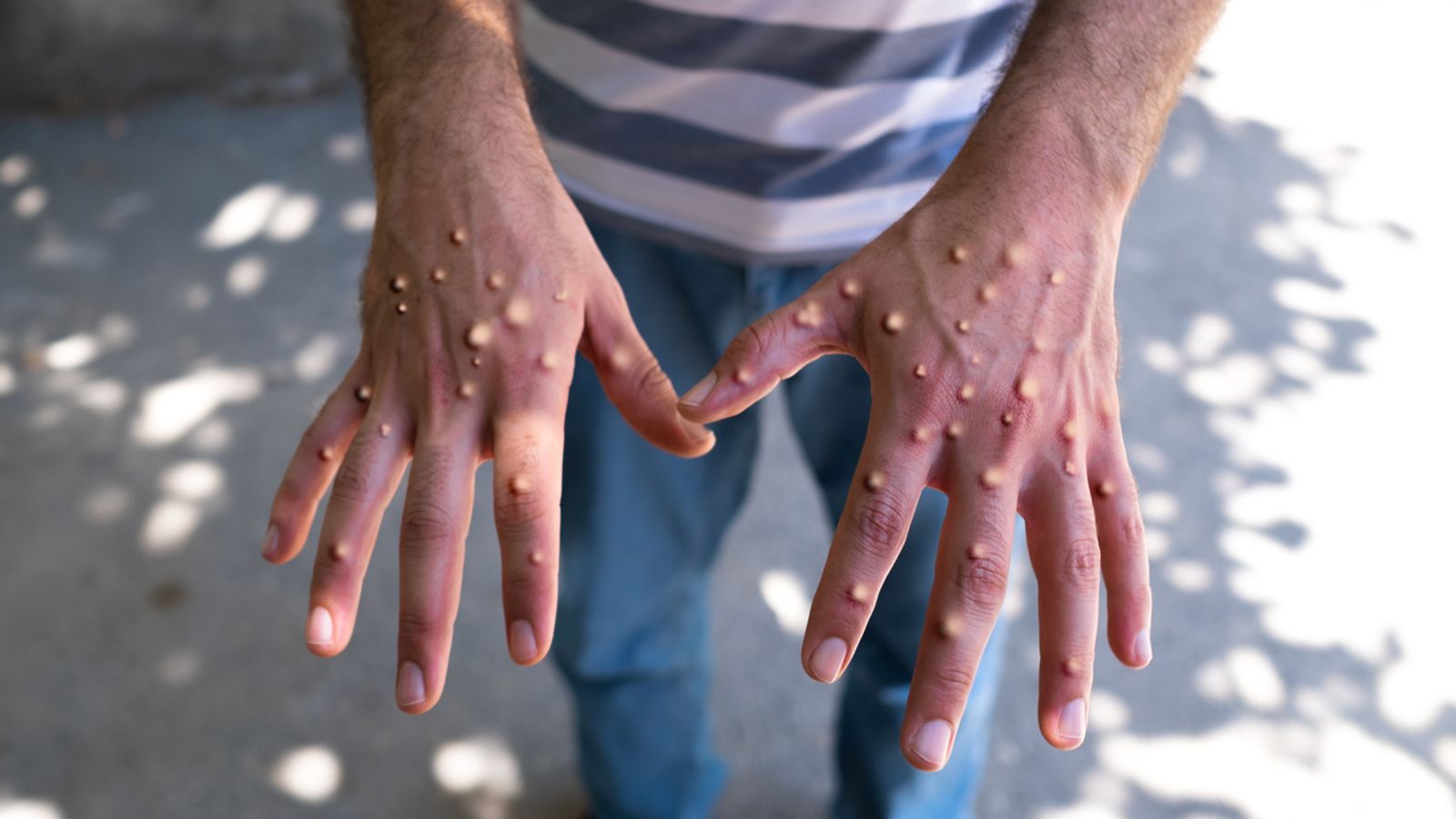First Clade 1b Mpox Case Detected in London
First Clade 1b Mpox Case in London: What You Need to Know
The world of public health is like a constantly shifting landscape, where new threats can emerge just when we think we have a handle on things. Just recently, news broke about the detection of the first Clade 1b mpox case in London. But wait, what exactly is mpox, and why should you care? Don’t worry, I’m here to provide you with a comprehensive understanding of this situation, its implications, and what steps to take next.
What Is Mpox?
Mpox is caused by the monkeypox virus, a member of the Orthopoxvirus genus, which also includes the well-known smallpox virus. Despite its name, mpox isn’t limited to monkeys; it can infect a variety of animals, including rodents, and can jump to humans. The term “mpox” has been adopted to reduce stigma, given the negative connotations often associated with the name “monkeypox.”
When humans contract mpox, the symptoms can range from fever and headache to a distinctive rash that can cover large portions of the body. This virus has been around for quite some time, but it is important to note that mpox is still relatively rare and mostly confined to specific geographical areas, especially in Central and West Africa. However, its recent spread beyond these regions has raised eyebrows and brought it into the public eye.
The Emergence of Clade 1b
But what about Clade 1b? The mpox virus has several genetic clades, with Clade 1b being one of the subtypes. This particular strain has shown variations in its genetic makeup, potentially leading to differences in disease severity, transmissibility, and vaccine efficacy. It’s crucial to understand that not all clades behave the same way.
Clade 1b isn’t merely a scientific curiosity; it represents a new layer of concern. As the virus adapts and changes, it could manifest in unique ways. Tracking these clades allows researchers and public health officials to stay ahead of the potential challenges they might pose.
What Does the London Case Mean?
So why should you be paying attention to this case in London? Well, the emergence of the Clade 1b strain there is a bellwether. It serves as a reminder of how interconnected our world has become. With increased travel and trade, pathogens have more opportunities to jump from one location to another.
The fact it has made its way to a major city like London suggests that surveillance, rapid response, and communication are key to preventing larger outbreaks. We’ve got to keep this on our radar—not just for those directly affected or at immediate risk, but for the wider community as well.
Potential Implications of Clade 1b
You might be wondering how a new strain affects you, especially if you aren’t currently in an affected area. Here are some potential implications:
- Spread of Disease: New strains can lead to increased transmissibility, meaning that the virus can spread more easily among populations.
- Clinical Severity: Variants might differ in how severely they infect individuals.
- Vaccine Efficacy: Some variants may evade the immune response generated by vaccination.
- Public Health Preparedness: More variants mean more challenges for health professionals in tracking and managing outbreaks.
Understanding these implications is crucial. It’s like walking a tightrope; if you don’t have a firm grasp on your balance (or in this case, the situation), you could easily fall into chaos.
Prevention and Response Measures
Now that you know what’s at stake, let’s talk about how to protect yourself and your community.
Vaccination
Vaccination remains a frontline defense against many viral infections, including mpox. Although mpox vaccinations might not be widely available in all locations just yet, the authorities are closely monitoring the situation. Keeping an eye on local health announcements can be vital.
Hygiene Practices
Good hygiene should be part of everyone’s routine, especially during outbreaks. Here are some key practices:
- Wash your hands frequently with soap and water.
- Avoid sharing personal items such as towels or utensils.
- Use hand sanitizer when soap isn’t available.
Awareness
Knowledge is power. Staying informed about infections, symptoms, and outbreak areas will help you make better decisions. Are you planning to travel? Check for health warnings or vaccination requirements for your destination.
Social Distancing
When concerns arise around contagious diseases, practicing social distancing can be another layer of protection. This isn’t just for your safety; it’s an act of societal responsibility.
Mental and Emotional Health
Let’s pivot for a second to talk about something less talked about: the mental and emotional toll that news of outbreaks can take. It can be easy to fall into a spiral of anxiety, worrying about your health and the health of your loved ones. If you’re feeling overwhelmed, consider reaching out to a friend or mental health professional. Physical health isn’t just about avoiding viruses; our mental wellness matters too.
Conclusion
The detection of the Clade 1b mpox case in London serves as a critical reminder of the ever-evolving nature of public health threats. As our world becomes increasingly interconnected, staying informed and prepared is essential. While the situation may seem daunting, knowledge and proactive measures can help mitigate risks.
Remember, being aware is half the battle— don’t let fear take the wheel. Focus on what you can control, and keep those hygiene practices up!
FAQs
1. What should I do if I suspect I have mpox?
If you experience symptoms like fever, headaches, and rashes, consult a healthcare provider as soon as possible. They can guide you on the next steps and testing opportunities.
2. How is mpox transmitted?
Mpox can be transmitted through close contact with an infected person, animal, or contaminated surfaces.
3. Is there a vaccine for mpox?
Yes, vaccines exist, but availability may vary by region. Check local health guidelines for more information.
4. What are the most common symptoms of mpox?
Common symptoms include fever, headache, muscle aches, back pain, swollen lymph nodes, chills, exhaustion, and a distinctive rash.
5. Should I cancel travel plans due to mpox?
Assess the latest health advisories and consider postponing your travels if you’re heading to an area that’s at heightened risk for outbreaks, especially with the new Clade 1b being detected. Always plan according to your comfort and safety.







